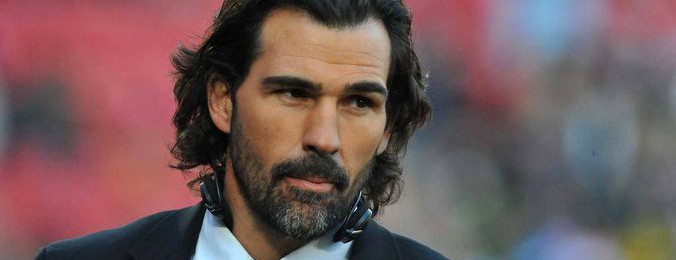The Springbok, once abundant and fiercely protected, is now endangered.
World Cup? With all that grey in Victor Matfield’s beard I thought the Springboks were off to play on the Senior Tour.
I’m serious. It’s borderline embarrassing. We’re so laden with experience we’ll do well to keep it up for the first 80 minutes, let alone the full six weeks. Remember Adriaan Strauss as Richie McCaw flew past to score from that lineout at Ellis Park? Aw, c’mon Richie I wasn’t ready. Panting, hands on knees. And he’s one of the laaities man. I’m not alone either. And only some of the commentators are being as polite as I am. I like the way Rob Houwing puts it: “ … sentiment leans toward the cautious…” Nice.
It’s Darwinian, the Springbok demise, rather than someone’s suddenly poisoned the water. Never mind Cosatu or Tshidiso Mokhoanatse. They’ve been natural predators ever since Madiba released the Springbok back into the wild in 1995. Even this New Zealand journalist Chris Rattue is small potatoes with his idea that the Springbok should “ … leap like a gazelle into history … ”. You can tell he’s a Kiwi with millions of sheep and fewer actual gazelles. Or he would know leaping means going forward, and that’s not where history is. So while it sounds all passive aggressive poetry, really it’s just a bit of a muddle. But they are good at rugby.
No. Like hermit crabs the Boks cling to their 1970’s playbook, even as the tide rises against it. Nick Mallett acknowledged after another flaccid weekend of Super Rugby (and long before the Rocky Horror Rugby Show against the Pumas) that it’s time for our Saffa coaches to learn from Kiwi coaches. God forbid. But good advice this time. You’d like to think. Instead Brendan Venter, professional rugby coach — and also a doctor — suggests no, not so much. He says it would be naïve to do so. Adding: Why would you model your game on another team just because they have proved successful?
Wait, what?
I recognise it’s Dr Venter speaking and not Coach Heyneke Meyer but the sentiment, given the Bok coach’s fondness for a little grey in the beard, is congruent.
I’ve manoeuvred my way into having a dig at Meyer here, but I shouldn’t. I bumped into him at the Sabi River Sun. And the team. And the thirty-odd BMWs laid on for their private consumption. In the flesh he comes across even more so as being a dedicated servant of the cause. So I don’t fault him on that. And I’m really into the way he carries on in the coach’s box. But he should learn from the New Zealand coaches.
Dear Heyneke: Avoid a blind copy / paste approach, yes, but don’t be so blind as to ignore the trends being set by the market leader. It’s part of your job.
Here is the way I see it. A few years ago the Kiwis changed the game when they decided to run into space instead of running into blokes. At first they found it difficult to get right, nothing really changed and no one paid much attention. RWC 2007 came and went and the All Blacks bombed out in the quarters and we won, go Bokke! But they didn’t bin the idea. Instead they realised they needed to learn new skills (to wit – the offload) and improve their fitness (a topic on its own, but the maths is: More Speed x 80 Minutes = More Space). So they set about doing it. And eventually it worked. And then they played with more speed and moved through more space and scored more tries and won RWC 2011 and people started paying attention.
The early adopters began asking questions immediately and taking notes. The slow adopters like us, hoisting the 2007 Webb Ellis Cup still and tearing Jake White to shreds, didn’t.
The cornerstone of South African rugby is running into blokes and some might see it as naff to change that approach, especially since we are so happy to do it. I get it. But it’s time for Coach Heyneke to fold some of these trending not-so-new-anymore ideas into our natural game, to stave off extinction. Let’s not idly allow the Springbok to become the Kodak of the rugby world. It’s too late for the RWC 2015 “Silverback” campaign, but that’s no reason to bin the progress completely.
It might be endangered now but it wasn’t that long ago, after all, that the Springboks were the market leaders.



